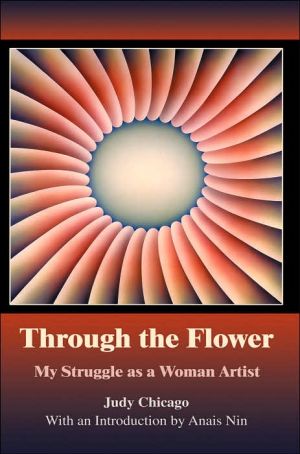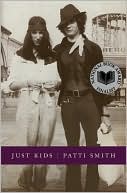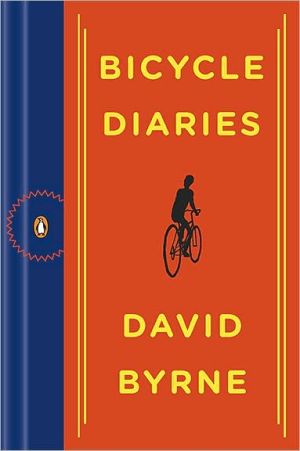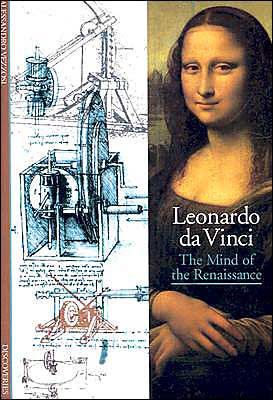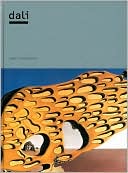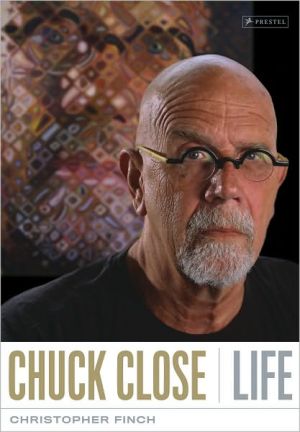Through the Flower: My Struggle as a Woman Artist
Through the Flower was my first book (I've since published nine others). I was inspired to write it by the writer and diarist, Anais Nin, who was a mentor to me in the early seventies. My hope was that it would aid young women artists in their development and that reading about my struggles might help them avoid some of the pitfalls that were so painful to me. I also hoped to spare them the anguish of 'reinventing the wheel", which my studies in women's history had taught me was done again...
Search in google:
Through the Flower was my first book (I ve since published nine others). I was inspired to write it by the writer and diarist, Anais Nin, who was a mentor to me in the early seventies. My hope was that it would aid young women artists in their development and that reading about my struggles might help them avoid some of the pitfalls that were so painful to me. I also hoped to spare them the anguish of reinventing the wheel , which my studies in women s history had taught me was done again and again by women, specifically because we have not had access to our foremothers experience and achievements one consequence of the fact that we still learn both history and art history from a male-centered bias with insufficient inclusion of women s achievements. I must admit that when I re-read Through the Flower, I winced at some of the unabashed honesty; at the same time, I am glad that my youthful self had the courage to speak so directly about my life and work. I doubt that I could recapture the candor that allowed this book to reflect such unabashed confidence that the world would accept revelations so lacking in self-consciousness. And yet, it is precisely this lack that helps give the book its flavor, the flavor of the seventies, when so many of us believed that we could change the world for the better, a goal that has been as one of my friends put it mugged by reality . And yet, better an overly idealistic hope that the world could be reshaped for the better than a cynical acceptance of the status quo. At least we tried and I m still trying. Perhaps I m just too old now to change.
THROUGH THE FLOWER\ My Struggle as a Woman Artist \ \ By Judy Chicago \ Authors Choice Press\ Copyright © 2006 Judy Chicago\ All right reserved.\ ISBN: 978-0-595-38046-6 \ \ \ Chapter One\ My Childhood \ I was born at the Michael Reese Hospital in Chicago, Illinois, in 1939, at the end of the Depression. My mother tells a story about wearing a big bow on her bulging stomach during her pregnancy, signifying her delight at carrying me. My first memory is when I was a year and a half old. I see myself in my crib, red-faced and crying, and my mother, dressed in a navy blue suit and matching beret, going out the door to work. Throughout my childhood, my mother worked, a situation which, I suppose, gave me a sense that women "did" something in the world. I was left with a series of housekeepers. The one I remember the best was named Oradie Blue, who was black and who inspired a game that my father frequently played with me. He would put me on his knee and tell me a story that always began: "Oradie Blue was walking down the street and met John Green. Then they continued walking together and met Norman White, to whom they talked for a while. Then Oradie Blue and Norman White left John Green and went to a restaurant where they met Mary Black." This story/game, combined with a constant stream of visitors of all races in our house, helped me to understand that color was not a significant factor in dealing with people.\ I loved my father and liked to play the games that he continually devised for me, games that trained me in logic, mathematics, and gave me a sense of human values. I have many memories of him and of my mother, but many of my recollections are mixed with and indistinguishable from stories told to me about my childhood, for I quickly became a focus of attention in my parents' active life. They were both involved in politics, and our house was the center for political activity in the neighborhood. I was too young to understand the meaning of this activity, but I loved the constant discussions, usually led by my father, who sat in a rust-colored velvet chair, next to a window, talking intensely, his fingers stained with the nicotine of his ever-present cigarette, his legs crossed, their whiteness showing beneath his slightly raised trouser leg. I was allowed to participate in many of the activities, and "Judy" stories are still told by my mother's friends about my often amusing antics.\ I possess fragmented glimpses of myself, my parents, my nurses, and the house on Bittersweet Place that we moved into when I was two, where I lived until I was eighteen. I didn't talk until I was two and a half, which was a source of great concern to my parents, to whom talking represented their main link to life. My mother frequently remarked about how my father and she always talked to each other in restaurants, while other married couples seemed to sit in stony silence. I learned the value that my parents placed on verbalizing, and, after my reluctant beginning, began to talk in such a way that grown-ups always remarked at my precocity, which pleased my parents enormously.\ My parents were very casual about nudity, and I often took baths with my father, at least when I was two or three. Several years ago, my mother reminded me of a story about one of these baths that made me quite uneasy. Apparently, I wanted to be like my father from the time I was young. One day, in the bath, I pointed to his penis and said, "When I grow up, Fm going to have one of those/' My father laughed and said "Yes, if you're a good girl, you'll have one of those. If you're a bad girl you'll have a lot of them." He repeated this story several times to various friends in front of me. The story always made me feel guilty about wanting to be like my father, and yet, I admired him and loved him and he was always the center of attention at parties, and everybody said he was really smart. Thinking about this story, I realized that it was not that I wanted to be a boy, but rather, that I wanted to be a person like my father. It was a long time before I was to realize that one's sex was supposed to determine one's personality, interests, and options.\ Because my mother worked, and because I saw women participating fully in all the discussions that went on in the house, I grew up with the sense that I could do what I wanted and be what I wanted. As a girl child, I was encouraged to be honest and direct, affectionate and trusting. I had two female cousins, both ten years older than I, both in college, who came to the house frequently, were very active intellectually, and provided positive role models for me.\ When I was three, I began drawing, and my mother, who had wanted to be a dancer, gave me a lot of encouragement. She told me many stories about her life prior to her marriage, when she went to the Jewish People's Institute and mingled with musicians, poets, and other creative people. Throughout my childhood, she told me colorful tales about the creative life, particularly when I was sick in bed, and these stories contributed to my developing interest in art, for, from the time I was young, I wanted to be an artist. My father, on the other hand, could never relate to my artistic impulse, so it was to my mother that I brought my artistic achievements and to my father that I brought my intellectual ones.\ My brother Ben was born when I was five and a half years old. I remember the day my mother brought him home from the hospital. There he lay, red-faced and screaming, on my parents' big bed, which, every Sunday afternoon, I claimed for my own when my father and I listened to radio programs. Ben was born with a vestigial stomach, which caused him great difficulty in ingesting food. He cried a lot, and it seemed that his arrival introduced strife into our household. I did not realize that there were other factors operating in my parents' lives that were creating tensions and strains. My parents' politics were extremely left-wing, although how radical I only knew when I was twelve or thirteen years old. They had been involved in politics throughout the thirties and forties. My father was a union organizer, and after the war, shortly after my brother was born, became the victim of the anti-Communist sentiments that ultimately manifested in Joseph McCarthy and his witch-hunts. When I was six, an FBI agent forced his way into the house when I was home alone with my brother. My mother arrived before he could question me, and she angrily chased him away. He had been trying to find out about my parents' political sentiments, which I really didn't understand then anyway. I hadn't realized that he was an FBI agent or that we were being harassed, as I was completely protected from everything but the emotional ramifications of the events in my parents' lives. Things were happening that I didn't understand, and they were disturbing, but, at the same time, much of my life was still untouched by my parents' problems.\ In 1947, I began to go to the Art Institute of Chicago for art lessons. Every Saturday, I took the No. 53 Bus and arrived at a world in which I could put aside the precocious daughter that my father loved and the confused girl that I was becoming and lose myself in the enchantment of drawing and painting. I used to walk up the steps between the great lions that guard the doorway of the museum and enter the large auditorium where classes were held. When I was nine, I switched to the Junior School, where classes were smaller, and which I attended until I was eighteen years old. I used to go upstairs to the galleries, where I would wander through the paintings, stopping often in front of the Monet haystacks and the beautiful Seurat. When I was about eleven, I became fascinated with Toulouse-Lautrec and the way he used reds, dotting them around the painting so that your eye was forced to travel around and around until it had absorbed the entire picture. At the time, I gave no thought to the fact that, while I was studying the color, the images of women painted by artists like Lautrec were also penetrating my psyche, later to confuse me, the artist, who wanted to paint, with me, the woman, who, I learned through these paintings, was supposed to be the model.\ My father had a large, quarrelsome, generous family, one or another of whom we visited regularly. My father, mother, brother, and I used to take the streetcar on Saturday. During the trip, we played games invented by my father, identifying objects on the street, counting different kinds of animals, any sort of game which, in my father's estimation, would help us build our powers of observation. Usually we went to see one or another of my father's sisters, where we ate boiled chicken or, my favorite, vanilla pudding with strawberries, served by my Aunt Rose, whose hand shook so nervously that, when she served matzo ball soup, I always expected a catastrophe.\ By 1948, my father had been driven out of the union by the threat of an investigation that would probably have resulted in a jail sentence. Rather than face that, he decided to try to keep the family together by quitting his job, leaving the union, and going to work as an insurance salesman. But, losing the work that provided his life with meaning was hard on him, so hard that he began to get sick. For the next five years, he slowly deteriorated, often coming home from work early. I'd return from school and find my father sitting in the rust-colored velvet chair, dressed in a robe, smoking his Chesterfields, reading or listening to the radio. I didn't know why he was home, but I knew that other fathers didn't do that. I began to think that there was something wrong with him, especially when I overheard my aunts talking to him or my mother, implying that my father's statements about not feeling well, about having a "bellyache," were not true. All this made me doubt my father, but at the same time, I loved him deeply, and at school, I began to say: "My father thinks this and my father thinks that," as if to reinforce his declining authority.\ When I was eleven, I had a boyfriend named Sandy, who was very smart in school. He took me to the Chicago Theater to see a movie and a stage show. While we were watching the movie, he put his arm around me, and I felt like a burning ember was on my shoulders. I was afraid that people in the audience would notice and think that I was a terrible girl, because, despite my parents' liberal attitudes, I had remained very naive about sex. My mother insists that she explained the facts of life to me when I was six, but I think that her explanation was so technical that I didn't connect it with my real life. I remember my friend Paula providing an explanation about sex when I was nine and she was eleven. I was sitting with her and her friend on the porch of Paula's north Side home. They were talking about rape. I asked them what that meant, and Paula replied: "That's when a man makes you fuck him." Not knowing what the word "fuck" meant, the explanation went over my head. Later in Paula's room, I pursued the discussion. Paula explained to me that "fuck" meant "when a man puts his thing in your thing." Then, thoughtfully, she added: "People do it when they love each other." I was satisfied with that information until I was fourteen, when one of my cousins, who was younger than I, amplified these curious facts with her explanation of an erection.\ I had had an unpleasant sexual experience when I was six, but I had not told my parents about it. I had a friend in the building in which we lived, a boy named Charles, who was four years older than I. He was pale and thin and wore wire rim spectacles. He locked me in a car one day and tried to molest me. I remember him pulling my blouse open and making me feel very frightened. I screamed and threatened to tell his mother, of whom he was terrified, and he finally let me out of the car. This memory is confused with another event that occurred when I was nine. I went to visit some relatives in a small town in southern Illinois. I was taken to see my Uncle Harry, my father's oldest brother, who was sick. He was lying on the bed, naked except for a pair of undershorts, completely paralyzed, with no cover to hide his withered body, almost blue in color. This pale, thin specter frightened me and somehow became connected in my mind with Charles' translucent white skin and the frightening experience in the car, probably because my uncle also wore wire rim glasses. My aunt forced me to kiss my uncle, and the next day he died. My father came and sent me home while he made the funeral arrangements. I was left with some strange fantasies about sex and death and my own needs which, combined with some of the images of devouring women in the paintings at the Art Institute, made me feel, later in my life, that my needs were threatening and my power devastating.\ I began to develop breasts at twelve, and I remember one day when I was trying on a new bathing suit, and my mother made me parade in front of my father, who suddenly looked at me in a new way. It was as if he saw me as a sexual creature for the first time. It perplexed me, pleased me, and embarrassed me all at once. I had, as I mentioned, a very unclear picture of my own sexuality, and spent endless hours with my girlfriends discussing whether our parents "really did it." About the same time, I had my first real argument with my father concerning the high school I was to attend. In the early fifties in Chicago, high school students frequently obtained "passes" to go to schools out of their district. All of my friends were applying for passes to go to Senn High School, an all-Jewish school. My father, without explanation, forbade me to apply for a pass. I began arguing furiously with him, as the tears poured down my face. He was unusually intractable, and I don't know why he didn't just explain the reason for his refusal. It seemed that the pass system was the way Chicago dealt with the black problem. White students, who, because of the location of their houses, would ordinarily go to schools with blacks, were given passes to go to all-white schools. In our neighborhood, this system was used to keep schools Jewish and Gentile. As it turned out, the pass system was stopped that year because of legal pressure, and I and all my Jewish friends went to what had formerly been a Gentile school. My father's reluctance to explain the political basis for the ppss system was probably linked up to the larger issue of his dilemma as a radical in the America of the fifties.\ He had never spoken directly to me about his political beliefs. Growing up, I witnessed many discussions in my house about the injustices in the world, and I knew that my father was trying, in the unions, to improve working conditions and increase wages. But McCarthyism made all leftwing activity suspect, and I guess my father felt the need to make me understand what was happening to him. One night, shortly before my thirteenth birthday, my father came into my room. He sat down and asked me if I had heard the word "Communist." I showed him a copy of our weekly school newspaper, called The Weekly Reader. On the front page, there was a cartoon showing horrible, bloated yellow men thrusting bayonets into young, blond American boys. Those awful-looking yellow men were "Communists," according to this text.\ My father explained to me that often, people who were trying to change the world, to improve it, were called "Communists" as a way of making it seem that they were doing something wrong. I said, somewhat cautiously, that it must be the people who didn't want to change things who were bad, not the people who were trying to make things better. My father seemed pleased by my statement, and for some reason, perhaps the intensity of my father's manner, I began to cry. He spoke to me that night about his desire to change the condition of black people in America, to abolish poverty, to expand educational opportunities for poor people, and to try to make the place he worked more humane. He tried to make me see that being called a name was not the most terrible thing in the world, but I didn't want my wonderful father to be associated with those ugly, bloated men in the school paper. Even though I understood that his goals were good, I was afraid that other people might not understand. When I went to school the next day, I felt that I could never tell anyone what my father had told me the previous evening. Everything in my upbringing had encouraged me to look up to and love my father, and yet, at school, anyone who was trying to change things was called a "Communist" and considered a "bad guy." I felt suddenly and completely alienated from my schoolmates, but I learned from that experience that the world's evaluation of a person might not be at all consistent with who that person really was, a lesson that was to serve me well in my own life.\ (Continues...)\ \ \ \ \ Excerpted from THROUGH THE FLOWER by Judy Chicago Copyright © 2006 by Judy Chicago. Excerpted by permission of Authors Choice Press. All rights reserved. No part of this excerpt may be reproduced or reprinted without permission in writing from the publisher.\ Excerpts are provided by Dial-A-Book Inc. solely for the personal use of visitors to this web site. \ \
Contents\ Preface to the New Edition....................ix\ Introduction by Anais Nin....................xv\ 1 My Childhood....................1\ 2 Making a Professional Life and an Equalized Relationship....................27\ 3 Back to Painting/Getting Married/The Women's Movement....................54\ 4 Fresno and the Women's Program....................70\ 5 Returning to Los Angeles....................93\ 6 Womanhouse/Performances....................112\ 7 Finding My Way and Discovering Women's Art....................133\ 8 Learning from the Past....................160\ 9 Getting It Together....................178\ Appendix....................207\ Performance Pieces....................207\ Index....................221\ About the Author....................229
